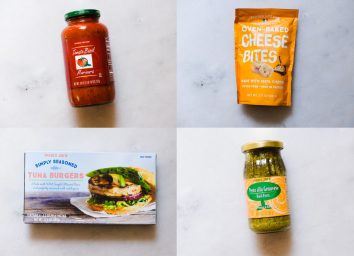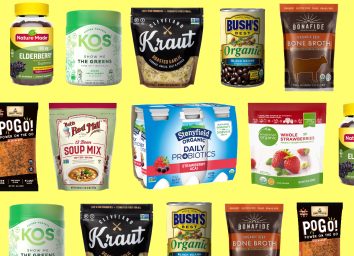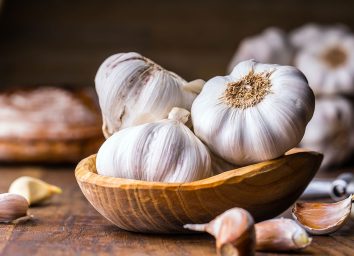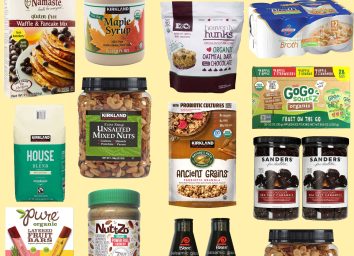What Happens to Your Body When You Can’t Have Dairy
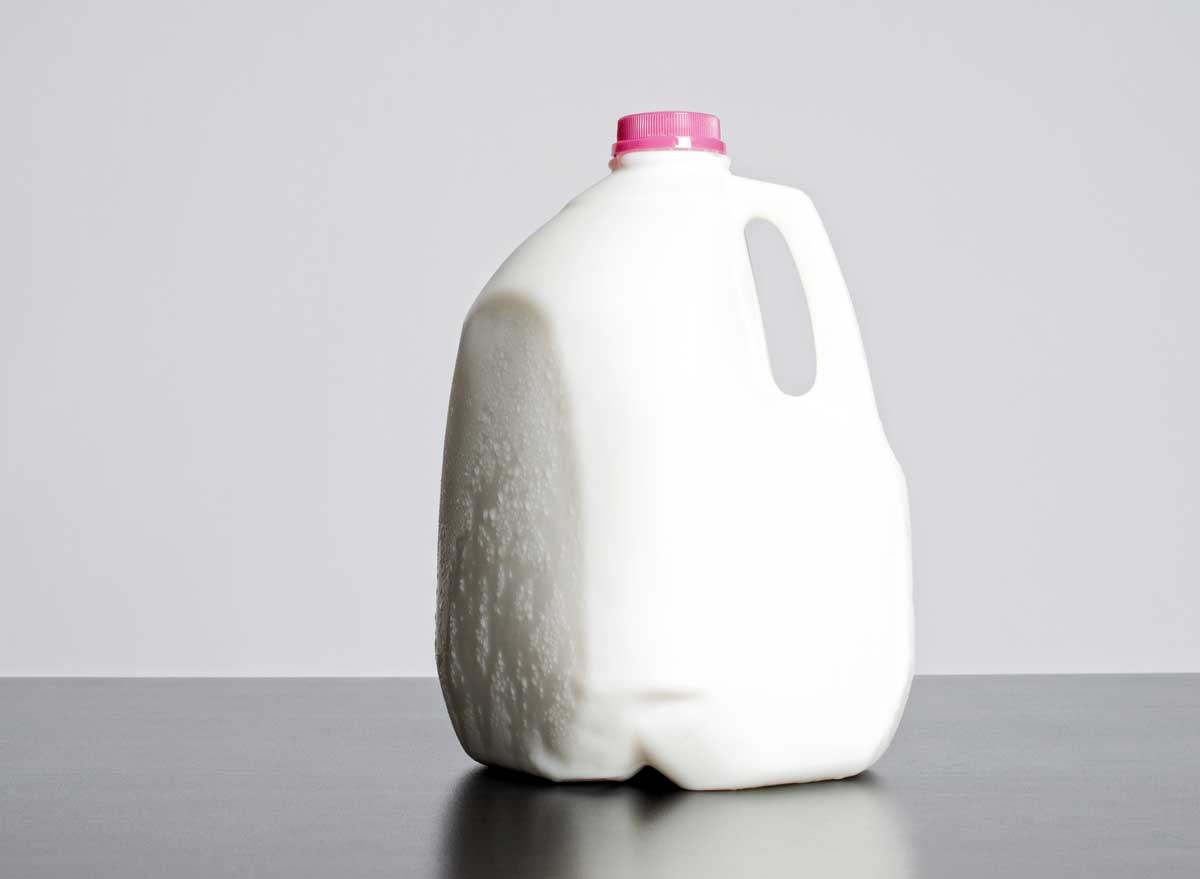
Fears of potential food shortages continue to plague consumers and aside from meat being a top concern, dairy could also become a scarcity.
In mid-March, grocery stores were placing limits on the purchase of milk due to high demand. At the same time, dairy farmers were forced to dump their supply of fresh milk as a result of mandated closures of schools, restaurants, and other food service facilities.
The Counter reported that dairy processors who largely supply to food service buyers didn’t have the necessary infrastructure to pivot to retail that quickly, which is why so much milk had to go to waste. In addition, processors that supply to retailers often don’t have extra equipment to facilitate an unexpected surge in demand, such as the one grocery stores experienced at the start of the pandemic.
In the event of a true dairy shortage, we asked Ashley Kitchens MPH, RD, LDN to tell us the benefits a dairy-free diet can have on the body. In fact, with 65 percent of the population estimated to have some form of lactose intolerance, Kitchens says that dairy is one of the first things dietitians instruct clients to remove if they’re experiencing digestive discomfort.
Now, here’s what may happen to your body should you eliminate dairy from your diet.
Can dairy have an inflammatory effect on the body?
If you eat it in excess, yes it most certainly can.
“Dairy products such as cheese and full-fat cow’s milk contain saturated fat and saturated fat can increase inflammation,” says Kitchens. “Saturated fat can also raise your bad cholesterol and put you at higher risk for heart disease.”
However, the group of people who experience the worst effects of consuming dairy is those with an allergy. If someone with a dairy allergy consumes cheese, for example, their immune system will signal an inflammatory response by releasing histamines in an attempt to rid the body of the proteins in dairy that are causing the reaction. This can cause someone to develop hives, have difficulties breathing, experience itching around the mouth, and even begin vomiting.
A food allergy is not synonymous with food intolerance, as the effects the two have on the body are starkly different. Registered dietitian, Cynthia Sass, has explained to Eat This, Not That! before that, intolerance to lactose, for example, won’t trigger an inflammatory response from the immune system.
Instead, the person will experience bloating and in some cases diarrhea because they are missing an enzyme that is needed to break down the lactose, which is the naturally occurring sugar in milk. Beth Lipton, recipe developer and food writer, found out she was lactose-intolerant as a young teenager, experiencing anything from bloating to gas to just overall digestive discomfort.
What happens if you go from eating dairy regularly to then removing it from your diet abruptly?
Kitchens says that you’re bound to experience a few beneficial changes when you remove dairy from your diet.
“Eliminating dairy may help improve chronic constipation symptoms, bloating, and excess gas,” she says. “You may see improvements in your skin and energy levels.”
Others may even notice a drop in headaches. Of course, the benefits will look different for each person, but Kitchens says positive outcomes are more often than not associated with removing dairy from the diet. You don’t have to worry about eliminating it from your diet too quickly as your body is unlikely to experience adverse side effects.
“Thankfully, most grocery stores are stocked with dairy alternatives from ice cream to yogurt to milk and cheese, making the transition really easy for you,” says Kitchens.
If you’re still able to find dairy products near you, but you want to remove lactose from your diet, Lipton loves lactose-free cheddar and muenster cheeses from Cabot as well as Kerrygold butter.
“All butter is very low in lactose,” says Lipton. “I find yogurt to be fine since the bacteria digest the lactose.”
In the event that dairy does become harder to find in the coming weeks, know that your body will likely respond just fine without (if not better) and that dairy-free versions of your favorite foods will still be on the shelves.
